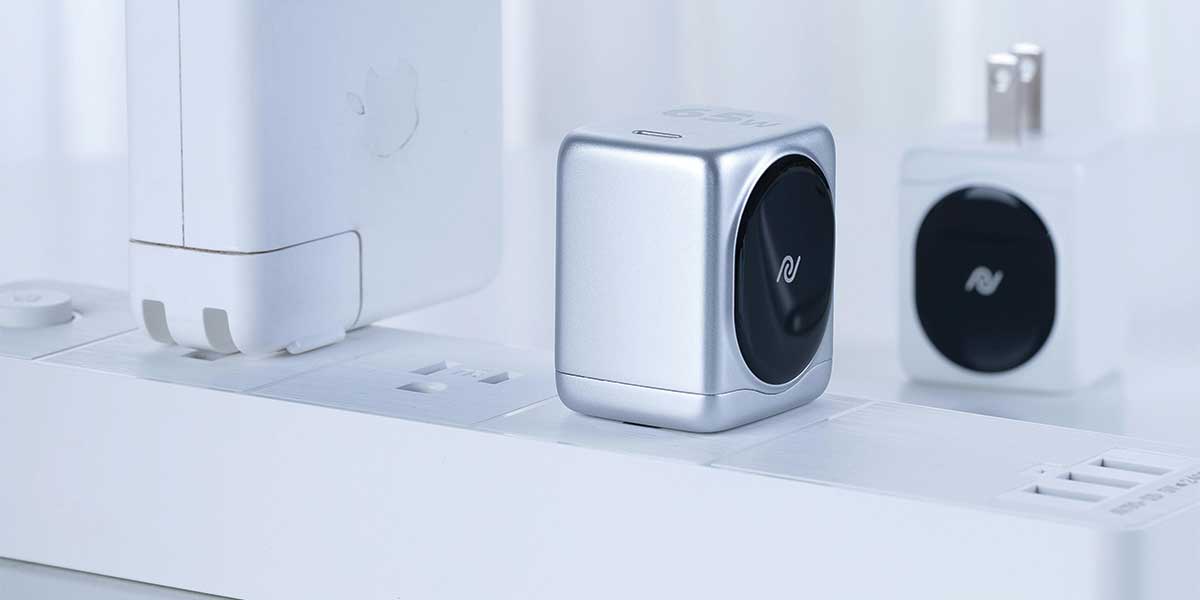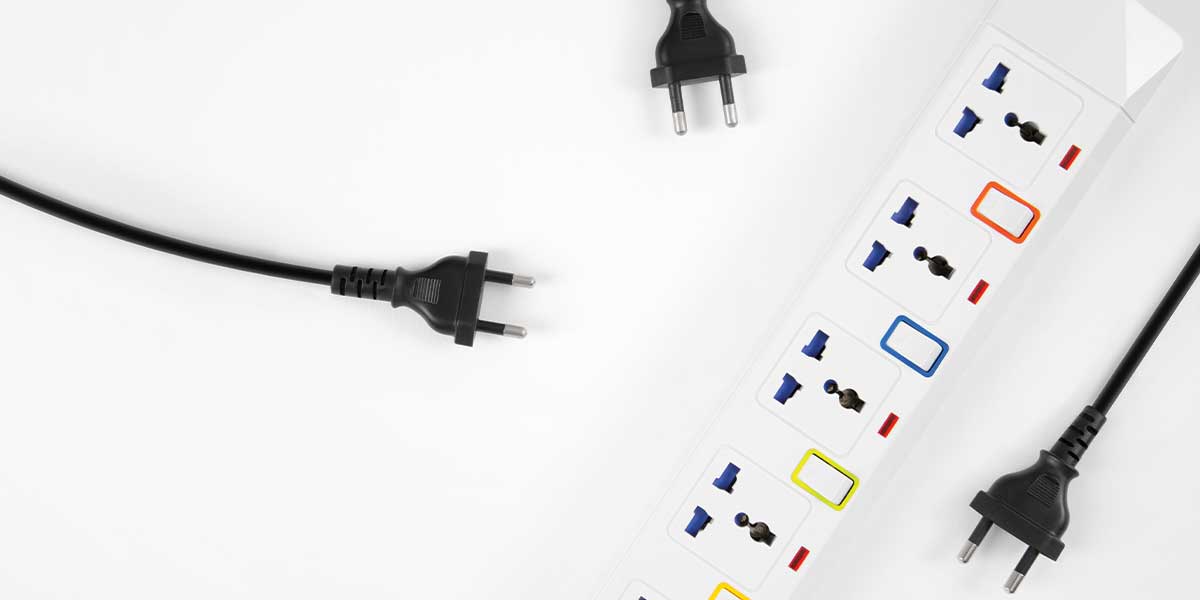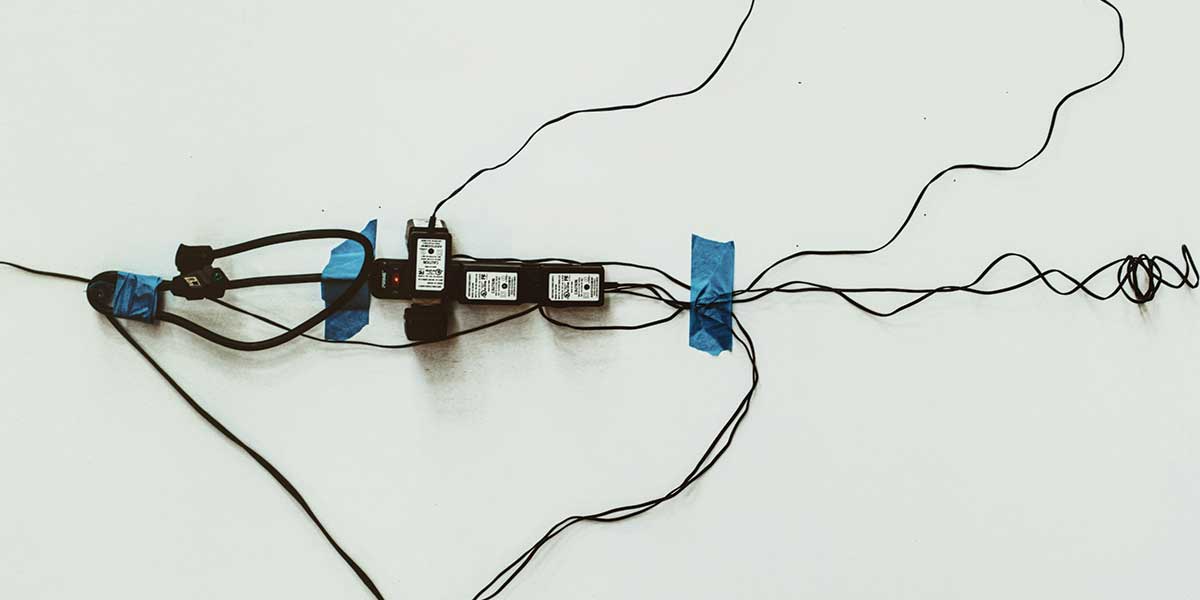Understanding Extension Cord Hazards and Proper Use
Extension cords are a quick and convenient solution when you need to power devices beyond the reach of standard outlets. However, improper use can lead to significant extension cord hazards. By ensuring extension cord proper use, you can avoid these dangers and keep your home safe.
Extension Cord Hazards
High-Traffic Areas
Running extension cords across high-traffic areas poses a serious tripping hazard. Loose or hanging cords can easily be tripped over, leading to falls and injuries. Moreover, the force of a trip can disconnect the cord, potentially damaging the devices connected to it. To avoid this, always place extension cords away from pathways and ensure they are secured properly.
Under Furniture or Rugs
It’s tempting to hide extension cords under rugs or furniture to keep them out of sight. However, this practice is extremely dangerous. Over time, extension cords can overheat when covered, leading to a potential fire hazard. The insulation around the wires can degrade faster when subjected to constant pressure and heat, increasing the risk of an electrical fire. Instead, consider running the cord along the baseboards or behind furniture, where it can remain visible and cool.
Securing with Nails or Staples
Using nails or staples to mount extension cords might seem like a good way to keep them in place, but it can be hazardous. These sharp objects can puncture the cord’s protective insulation, exposing the wires inside. This exposure can lead to electrocution if someone comes into contact with the damaged area. It’s safer to use clips or other devices specifically designed to hold extension cords without damaging them.
Connecting Multiple Cords
Avoid plugging one extension cord into another, a practice known as daisy-chaining. This reduces the electrical capacity and can lead to devices not receiving sufficient power. Daisy-chaining can also increase the risk of overheating and electrical fires because the combined length of the cords often exceeds the safety limits of the wires. Always use a single, longer extension cord or install additional outlets to meet your needs.
Outdoor Use
Only use extension cords rated for outdoor use when operating outside. Indoor extension cords lack the durability to withstand outdoor conditions, such as moisture, temperature fluctuations, and physical wear. Outdoor extension cords are designed with thicker insulation and are more resistant to environmental factors, reducing the risk of electrical shock and fire.
Electrical Load
Every extension cord has a specified electrical load capacity, usually indicated on its packaging or the cord itself. Overloading an extension cord by plugging in devices that exceed this capacity can lead to overheating and fire hazards. It’s crucial to calculate the total wattage of all devices connected to the extension cord and ensure it does not exceed the cord’s rating. If in doubt, consult an electrician or use a power strip with an integrated circuit breaker.
Storage
Proper storage of extension cords is essential to prolong their lifespan and maintain safety. When not in use, unplug them by holding the plug (not the cord) and store them indoors. Exposure to the elements can cause cords to crack and deteriorate, leading to potential electrical hazards. Coiling the cords neatly and storing them in a dry, cool place will help maintain their integrity and readiness for future use.
Three-Prong Cords
Three-prong extension cords are designed with a grounding prong for added safety. Forcing a three-prong plug into a two-prong outlet removes this safety feature, increasing the risk of electrical shock. The grounding prong provides a path for electrical current to safely return to the ground in the event of a fault. Always ensure that the outlets you use are compatible with three-prong plugs, or use an adapter that maintains the grounding feature.

Extension Cord Proper Use
By following these guidelines, you can ensure the proper use of extension cords and minimize potential hazards.
Assessing the Need for Extension Cords
Evaluate your reliance on extension cords. If you frequently use them because of a lack of outlets, it may be time to consider installing additional outlets in strategic locations. This not only enhances convenience but also reduces the risk of overloading extension cords.
Choosing the Right Extension Cord
Select an extension cord that meets the specific requirements of your devices. Consider factors such as length, gauge, and load capacity. Heavier gauge (lower gauge number) cords are suitable for higher load appliances, while lighter gauge cords are better for smaller devices.
Proper Placement and Routing
When placing extension cords, ensure they are routed away from foot traffic and are not pinched by furniture. Use cord covers or protectors if necessary to prevent tripping and damage. Avoid running cords through doorways or windows where they can become pinched or frayed.
Regular Inspection
Regularly inspect your extension cords for signs of wear and tear, such as fraying, cracking, or exposed wires. Replace damaged cords immediately to prevent electrical hazards. Even if a cord appears to be in good condition, check the plug and outlet connections for signs of overheating or burning.
Temporary Use Only
Extension cords are intended for temporary use, not as permanent wiring solutions. If you find yourself using extension cords for extended periods, it’s a sign that you need more permanent electrical solutions, such as additional outlets or new wiring.
Labeling and Organizing
Label extension cords to keep track of their load capacity and intended use. Organizing cords by their purpose (e.g., indoor, outdoor, heavy-duty) helps ensure that you use the right cord for the right job.

Expert Assistance
For professional help, consider contacting a licensed electrician. An expert can assess your electrical needs, install additional outlets, and provide guidance on safe extension cord use.
Contact Expert Electric for Safe Electrical Solutions
Elevate your electrical system with Expert Electric’s unparalleled service. Whether enhancing your indoor ambiance or brightening your outdoor spaces, our team is your ultimate solution. Don’t let subpar electrical work compromise your property’s potential. Choose experts who will illuminate every corner with precision and care.
Dial 604-681-8338 today and start your journey to electrical excellence with Expert Electric. Our service isn’t just about fixing issues; it’s about investing in peace of mind, safety, and flawless functionality. Our seasoned professionals tackle any challenge, ensuring your space is safe and shining with its full potential.
From intricate indoor wiring to vibrant outdoor energy, Expert Electric is your reliable partner in transforming electrical dreams into reality. Our commitment to quality, safety, and customer satisfaction sets us apart, making us the go-to choice for discerning homeowners and businesses.
Don’t wait for a flicker to become a failure. Take proactive steps toward exceptional electrical health by calling Expert Electric at 604-681-8338. Empower your space with top-tier electrical work’s strength, beauty, and reliability. Join our many satisfied customers and illuminate your life with Expert Electric. Your journey to a brighter, safer, and more efficient space begins with us—where excellence is just a call away.


